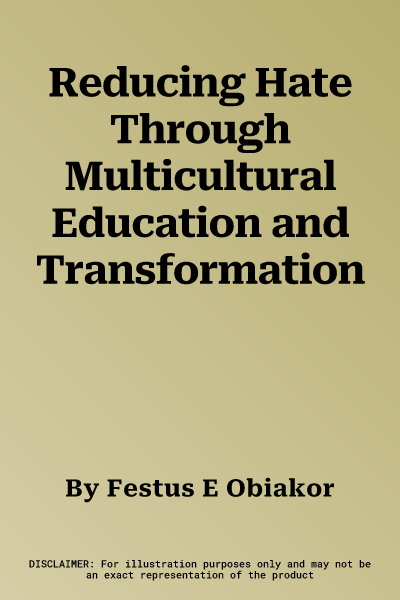Reducing Hate through Multicultural Education and Transformation is a
book that reminds us that we live in a complex world; and at micro and
macro levels, the demography is changing and people are worried about
the current state of affairs, their future, and the future of their
children. At local, national, and global levels, there appears to be
unsteadiness, crises, and struggles in our economies, politics, and
societies. Disruptions, disasters, and deaths are visible at all spectra
of our lives; and our leaders seem unready, unwilling, underprepared,
and unprepared to bring us together to solve our problems for the common
good. Even when we make efforts to respond to human differences and
multicultural valuing, they seem to be half-baked cakes that are unready
for consumption; and there continues to be visible hateful actions that
devastate our sacred existence. While these hateful actions have
filtered into our families, schools, communities, nation, and world, we
pretend to solve them by engaging in phony community relations,
fraudulent multiculturalism, and unreasonable "wokeness" to masquerade
our inefficiency, inflexibility, prejudice, and jaundiced views.
Reducing Hate through Multicultural Education and Transformation
provides cutting edge solutions for innovative educators and leaders.
Yes, hate is a controversial construct that is rarely researched,
studied, and discussed in education. The reason is that teachers and
related professionals are supposedly very liberal people who cannot hate
their culturally and linguistically diverse (CLD) students, parents, and
colleagues. And, the lingering question is, can a teacher who is always
liberal be also hateful? This question seems legitimate; and, to answer
it, we must look deeper into traditional presumptions. The reality is
that White educators and professionals who dominate the educational
profession are human-beings who live in their respective White dominated
communities. As a result, they teach or lead people who they do not know
very well. If not, why should CLD individuals continue to experience
hateful misidentifications, misassessments, miscategorizations,
misplacements, and misinstructions in school programs? And, why should
disproportionate placements of CLD learners with special education
needs, gifts and talents, and emotional/behavioral problems continue to
be burning issues in education? This book provides outside-the-box
solutions!


